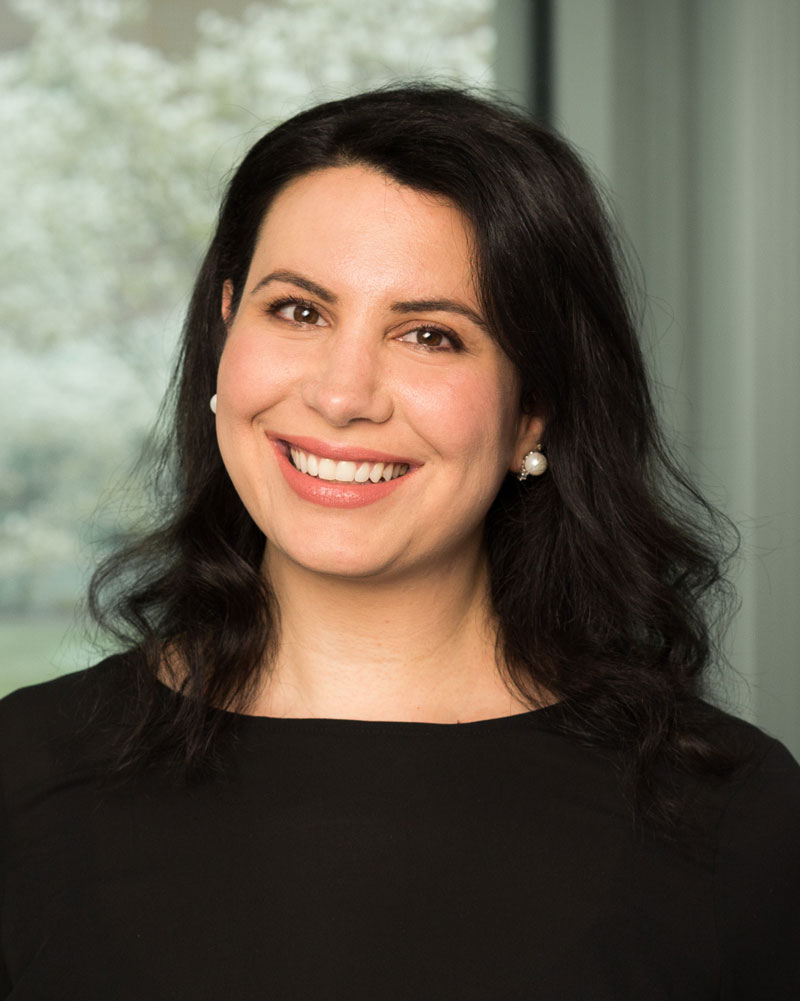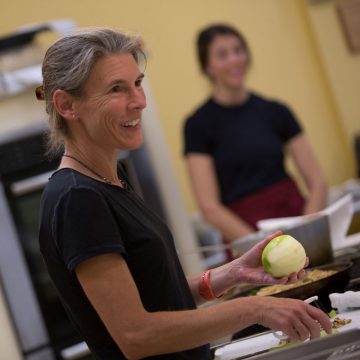
Eating a nutritious diet, along with other lifestyle choices, is an integral part of maintaining good health, yet many physicians and medical students struggle not only to provide counseling to their patients, but to make healthy choices themselves. Like many of us, they cite constraints of time and a lack of nutrition and culinary know-how as barriers.
While research shows that 60 percent of patients believe physicians are experts in nutritional knowledge, only 14 percent of physicians feel comfortable offering nutrition advice. The reason: in most medical school curricula, nutritional content is fragmented and informal.
“There is increasing recognition of the important role nutrition plays in many of the most prevalent and expensive to treat chronic diseases in America today—type 2 diabetes, cardiovascular disease, and obesity are at epidemic proportions,” says Rand Swenson, MD, PhD, a professor of medical education and neurology and chair of medical education at Geisel. “Any solution to this problem must include attention to basic nutritional principles.”
In an effort to stem this burgeoning problem, Geisel is integrating evidence-based nutrition content across all four years of its curriculum.

“This is a trailblazing initiative,” says Rima Itani Al-Nimr, MS, RDN, LD, director of the school’s Nutrition in Medical Education program, which launched in August 2017. “In order to help graduate the complete physician—in line with Geisel’s mission—a comprehensive nutrition curriculum is crucial to the medical school’s success. Geisel is among only a handful of medical schools in the nation with this level of nutrition education integration.”
In the year since its inception, the program has been the driving force behind implementing the nutrition curriculum—content has been added to many first- and second-year courses where medical students learn the links between the medical sciences, diseases, and nutrition science, and in On Doctoring, where students practice nutrition-specific motivational interviewing techniques. This fall, the third-year OB/GYN clerkship includes nutrition content and more will be added to other courses as the implementation process evolves. By the time students graduate, the newly minted physicians will be able to perform nutrition assessments of their patients leading to better managing their health. They will also have the tools to take better care of themselves.
Doctors play an important role in explaining nutrition’s metabolic effect on health. They are more likely to advise patients to adopt healthful eating habits if they themselves eat well—though knowing what to eat isn’t the same as knowing how to prepare nutritious meals or helping others to do so. Translating nutrition knowledge into practical skills is a necessity. “Teaching culinary skills should be part of this comprehensive curriculum. We can’t do one without the other,” Al-Nimr says.
Culinary medicine, an emerging field that incorporates research on healthful food, nutrition, and cooking into the practice of medicine in order to promote health and to assist with the management of chronic disease, is capturing the attention of physicians and medical students.
Richard Rothstein, MD, the Joseph M. Huber Professor of Medicine, senior associate dean for clinical affairs, and chair of the Department of Medicine at Geisel and Dartmouth-Hitchcock (D-H), was an early advocate of culinary medicine and says it is an important part of the hospital’s culture, including its Weight & Wellness Center and Culinary Medicine Program.
Citing the rise in obesity and morbid obesity as looming healthcare concerns that will affect the cost of delivering care, Rothstein says treatment is not as simple as telling patients to lose weight. “Our focus is more holistic—we encourage patients to develop healthy attitudes about life, food, and fitness, which we believe naturally leads to weight management.”
Though obesity is tied to many chronic illnesses—nearly half of all cardiovascular mortalities in the U.S. are linked with dietary factors—nutrition science encompasses more than just weight loss. Nutrition therapy is an intricate part of an overall treatment plan for a wide variety of diseases—from heart disease and diabetes, to cancer and kidney disease.

Nutrition also affects clinical outcomes—surgical patients do better when they are well nourished while malnourished patients take longer to heal. And poor nutrition in utero appears to affect future health.
The hospital’s Culinary Medicine Program, directed by Auden McClure, MED’99, MPH’08, a trained chef and pediatrician at Children’s Hospital at Dartmouth-Hitchcock, offers evidence-based nutrition and culinary learning with the aim of providing physicians, medical staff, patients, and community members with the knowledge and practical skills to better embrace healthy lifestyles.
“Our goal is to help participants translate nutrition recommendations into making healthy food choices over their lifetime,” McClure explains. “This includes meal planning, shopping, and prepping food to fit healthful meals into a busy schedule. Health coaches and dietitians partner with our chef to explain healthy cooking techniques and food choices as well as strategies to make this happen at home even when cost may be a barrier.”
For first- and second-year medical students, a Culinary Medicine Program enrichment elective aims to not only teach important counseling and lifestyle skills but to promote student wellness—recognizing the importance of caring for oneself as one works to care for others. McClure says, “The culinary piece is very exciting and innovative because it builds on what Rima is teaching in the classroom and demonstrates how to provide practical skills and nutrition counseling to patients and their families.”
“A majority of first-year Geisel students have said nutrition education is a topic of interest,” Al-Nimr notes. “We are giving students the knowledge and power to guide patients when it comes to nutrition—just as they do when it comes to prescribing medications or explaining surgical procedures.”